MercoPress. South Atlantic News Agency
Tag: Indec
-
Tuesday, April 19th 2011 - 02:09 UTC
Argentina’s economic activity indicator jumped 8.7% in February

Argentina's February monthly economic activity indicator, or EMAE, jumped 8.7% on the year and was up 0.4% on the month, the national statistics agency Indec reported Monday. The EMAE comprises most components of gross domestic product.
-
Monday, April 18th 2011 - 09:51 UTC
An estimated 40% of Argentine live on less than 8 US dollars per day
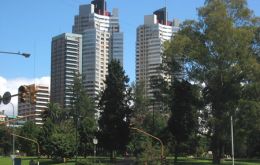
An estimated 16 million Argentines, (out of a population of 40 million) live on less than 800 pesos per month which is equivalent to 8 US dollars per day, according to the latest data from the official Homes Standing Poll.
-
Saturday, April 16th 2011 - 10:02 UTC
Argentina has not replied IMF recommendations for an inflation index
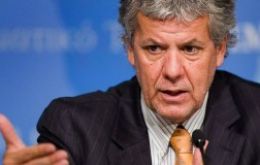
IMF Western Hemisphere Director Nicolás Eyzaguirre said the organization had not yet received any official communication from the Argentine government regarding IMF recommendations over its inflation index.
-
Saturday, April 16th 2011 - 00:13 UTC
Argentine economy forecasted to expand 8% in 2011 with inflation ranging 25%

Argentina’s 2011 economic growth forecast was raised to 8% from 5% by Nomura Securities International based on a strong surge from domestic demand and rising commodity prices. Government primary spending is expected to continue since 2011 is electoral year.
-
Tuesday, April 12th 2011 - 04:20 UTC
IMF presents report to develop a new consumer price index in Argentina
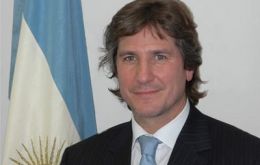
The IMF has presented a report to Argentine authorities with specific recommendations for developing a new, nationwide consumer price index to replace the much-criticized current index, the fund said in a press release Monday.
-
Tuesday, April 5th 2011 - 09:42 UTC
IMF begins to work in Argentina in the elaboration of a new cost of living index
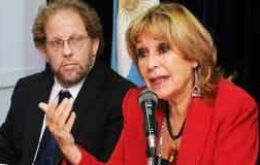
International Monetary Fund (IMF) staff arrived Monday at Argentina’s Statistics Bureau, Indec headquarters in Buenos Aires to meet with its chief Ana María Edwin and its Director Norberto Itzcovich and begin the elaboration of a new cost of living index.
-
Friday, March 25th 2011 - 01:06 UTC
IMF mission travels to Argentina in April to help design a new national CPI
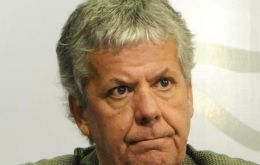
The International Monetary Fund said Thursday it will send a team to Argentina again next month to continue work on revamping the government's discredited inflation measure, and will provide specific recommendations.
-
Wednesday, March 16th 2011 - 05:10 UTC
February inflation in Argentina, 0.7%; private estimates double that percentage
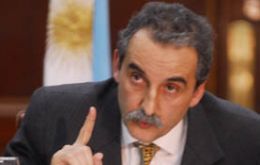
Inflation in Argentina advanced 0.7% in February over the previous month pushed mainly by increases in the clothing sector (2.2%) and leisure activities (3.5%), according to the official Indec National Statistics Bureau. During the first two months of the year, the consumer prices index accumulated 1.5%.
-
Wednesday, March 9th 2011 - 05:14 UTC
Argentina bans inflation from official jargon; inflation of synonyms
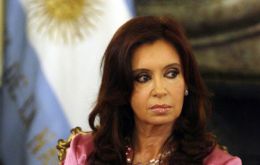
Next October Argentines will be going to the polls to vote for president and renew Congress which anticipates a rough political eight months, but before that the administration of President Cristina Fernandez de Kirchner has to weather a round of labour contracts which will be demanding strong adjustments because of the “prices distortion and dispersion” since the word ‘inflation’ has been erased from the official jargon.
-
Tuesday, March 1st 2011 - 06:40 UTC
Argentina’s imports growth outpacing exports by two to one
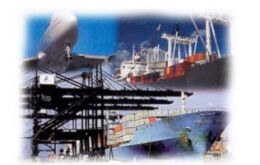
Argentina’s January trade surplus in January confirmed the shrinking tendency increasingly present all along 2010 as imports’ growth outpaced exports by two to one.
